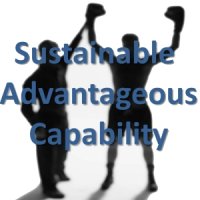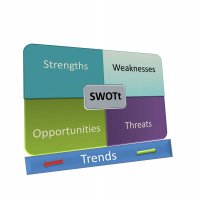Have you ever made a bad hiring decision?
- Hired the wrong person for a job
- Chose the wrong person for a team or project
- Invested in training new salespeople or reps, only to find that they achieved poor results when it came time to get to work (Knowledge is not necessarily power unless accompanied by the right capabilities).
Unfortunately, making bad people decisions is not uncommon due to the way most companies manage their talent acquisition processes. For a couple decades repeated studies have shown the exorbitant cost to these mistakes typically centering around 3 times the annual salary or between one hundred and two hundred thousand dollars each time. Many of the costs are hidden in the short term but they are still there. Some of the factors that contribute to this include:
- Lying on resumes and exaggerating skill sets are prevalent - studies have indicated over 80% of resumes contain at least one significant lie.
- Impressive credentials can create bias relating to overall qualifications or real weaknesses.
- Most candidates have prepared well to sell themselves and it's not that hard to "perform" for 60 minutes but that performance may have little to do with actual job performance.
- Background checks are not designed to uncover reveal character flaws
- Often candidates with horrible track records but some good short term "performances" in interviews can get chosen. One key reason
- For the last decade, most U.S. employers advise their employees to avoid true negative feedback during a reference check due to litigation concerns. Reference checks serve a role but a very minor one.
To ensure your search results in a high performer, most would agree, you need an objective assessment of the candidates ability to be a high performer. High performance is a function of a number of things including natural tendencies, motivational factors, task factors, decision styles, interests, tolerances, work preferences, other patterns of behavior (i.e. interpersonal factors) and for many higher level jobs, leadership effectiveness factors. All of these things can be measured accurately, related to the behavior of high, average and low performers in a similar job and used through a scientific assessment to determine whether a person will have a high or low probability of being a high performer.
























 One of the most difficult challenges managers face is choosing the right people and understanding how to get them to perform at their best. During the last 12 years of our experience, we have found no other tool except the Harrison Assessment that enables this kind of capability with incredible accuracy and insight.
One of the most difficult challenges managers face is choosing the right people and understanding how to get them to perform at their best. During the last 12 years of our experience, we have found no other tool except the Harrison Assessment that enables this kind of capability with incredible accuracy and insight.

 "The U.S. Department of Labor has estimated the costs to replace an employee to be approximately 1/3 their annual salary; but when you start looking at the impact of hiring the wrong employee and having to replace them, some studies say 2.5 times annual earnings, some 4 times and some even higher." AGILEdge
"The U.S. Department of Labor has estimated the costs to replace an employee to be approximately 1/3 their annual salary; but when you start looking at the impact of hiring the wrong employee and having to replace them, some studies say 2.5 times annual earnings, some 4 times and some even higher." AGILEdge













